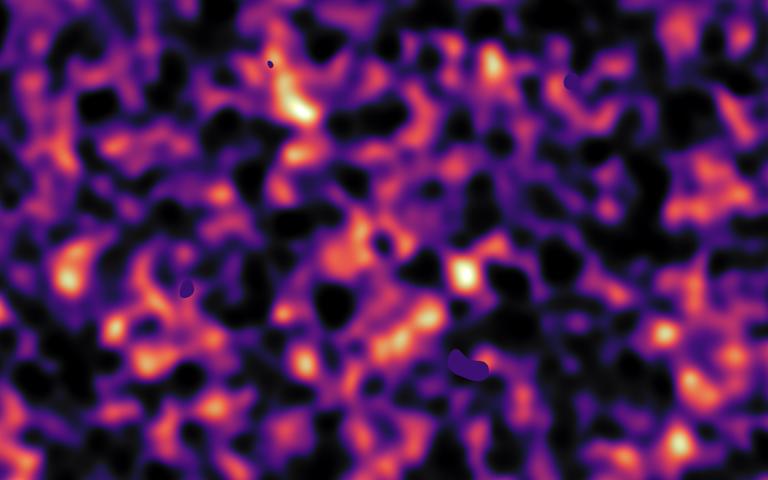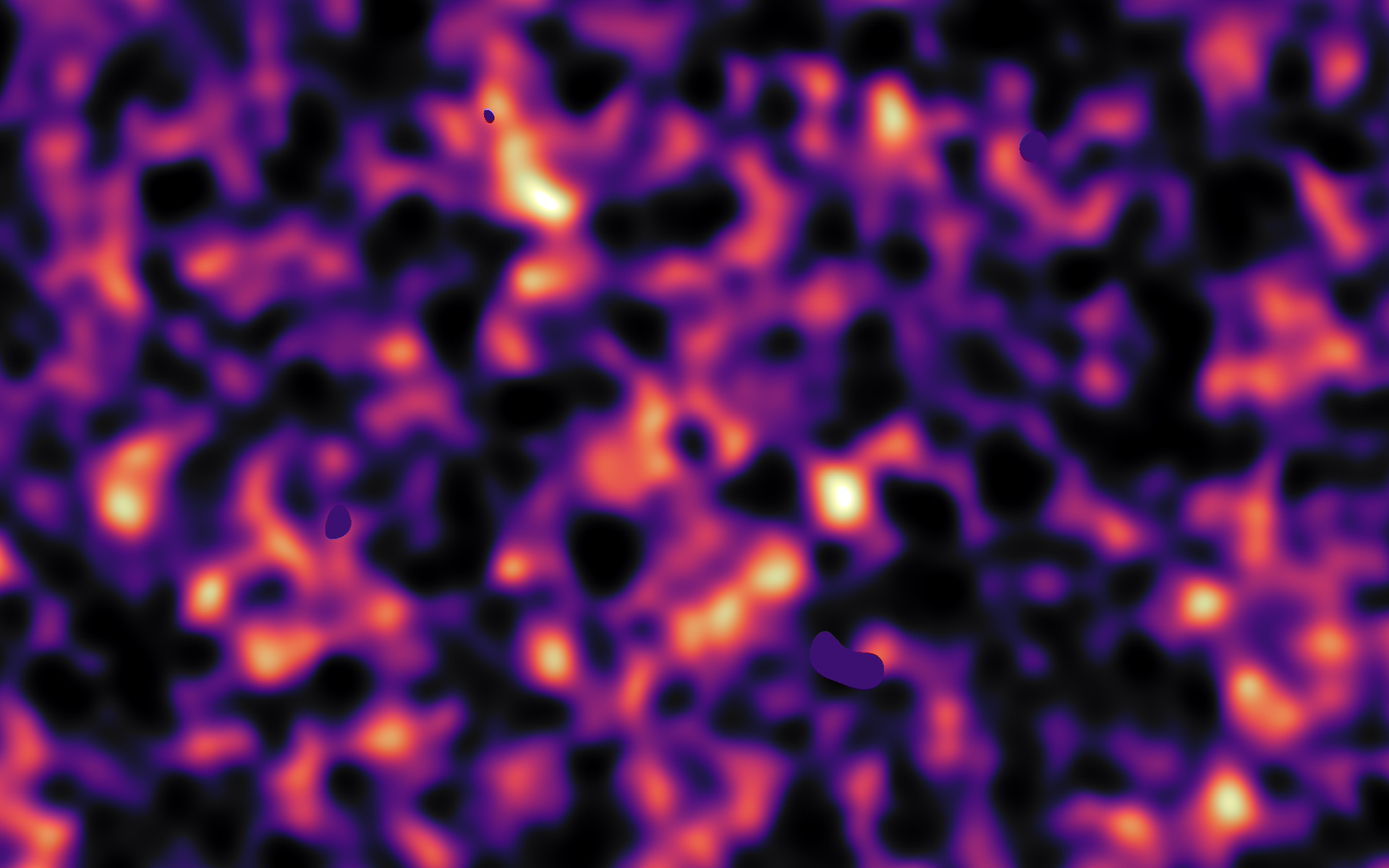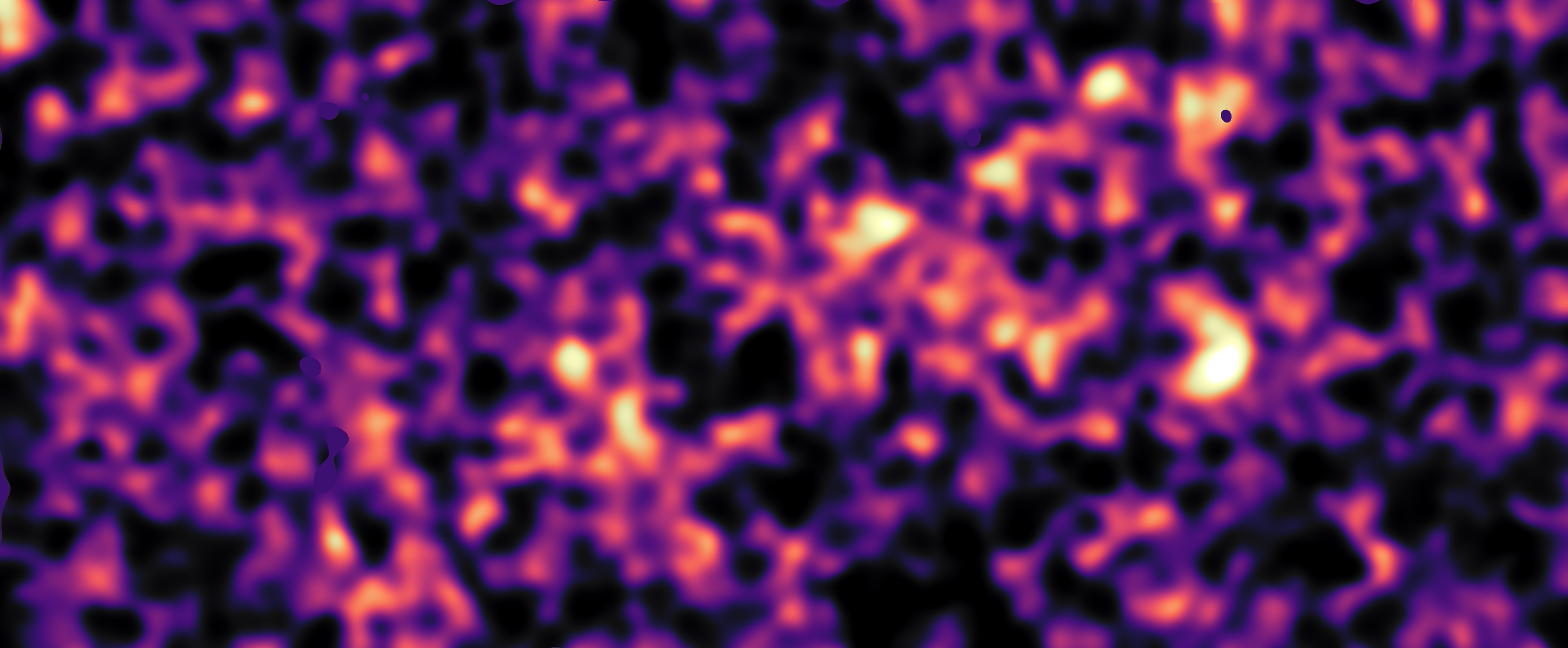 RAS
RASSurprisingly smooth dark matter
New survey data suggest that dark matter is less clumpy than thought, posing a problem for theorists.
extra_body_classes_preprocess_html(Array, 'html', Array)
call_user_func_array('extra_body_classes_preprocess_html', Array) (Line: 261)
Drupal\Core\Theme\ThemeManager->render('html', Array) (Line: 480)
Drupal\Core\Render\Renderer->doRender(Array, ) (Line: 240)
Drupal\Core\Render\Renderer->render(Array) (Line: 158)
Drupal\Core\Render\MainContent\HtmlRenderer->Drupal\Core\Render\MainContent\{closure}() (Line: 627)
Drupal\Core\Render\Renderer->executeInRenderContext(Object, Object) (Line: 159)
Drupal\Core\Render\MainContent\HtmlRenderer->renderResponse(Array, Object, Object) (Line: 90)
Drupal\Core\EventSubscriber\MainContentViewSubscriber->onViewRenderArray(Object, 'kernel.view', Object)
call_user_func(Array, Object, 'kernel.view', Object) (Line: 111)
Drupal\Component\EventDispatcher\ContainerAwareEventDispatcher->dispatch(Object, 'kernel.view') (Line: 186)
Symfony\Component\HttpKernel\HttpKernel->handleRaw(Object, 1) (Line: 76)
Symfony\Component\HttpKernel\HttpKernel->handle(Object, 1, 1) (Line: 58)
Drupal\Core\StackMiddleware\Session->handle(Object, 1, 1) (Line: 48)
Drupal\Core\StackMiddleware\KernelPreHandle->handle(Object, 1, 1) (Line: 28)
Drupal\Core\StackMiddleware\ContentLength->handle(Object, 1, 1) (Line: 32)
Drupal\big_pipe\StackMiddleware\ContentLength->handle(Object, 1, 1) (Line: 191)
Drupal\page_cache\StackMiddleware\PageCache->fetch(Object, 1, 1) (Line: 128)
Drupal\page_cache\StackMiddleware\PageCache->lookup(Object, 1, 1) (Line: 82)
Drupal\page_cache\StackMiddleware\PageCache->handle(Object, 1, 1) (Line: 48)
Drupal\Core\StackMiddleware\ReverseProxyMiddleware->handle(Object, 1, 1) (Line: 51)
Drupal\Core\StackMiddleware\NegotiationMiddleware->handle(Object, 1, 1) (Line: 36)
Drupal\Core\StackMiddleware\AjaxPageState->handle(Object, 1, 1) (Line: 51)
Drupal\Core\StackMiddleware\StackedHttpKernel->handle(Object, 1, 1) (Line: 704)
Drupal\Core\DrupalKernel->handle(Object) (Line: 19)
 RAS
RASNew survey data suggest that dark matter is less clumpy than thought, posing a problem for theorists.


KDS region G15, covering an areas 420 times that of the full Moon
Image Credit: Kilo-Degree Survey Collaboration/H. Hildebrandt & B. Giblin/ESO
New survey data suggest that dark matter is less clumpy than thought, posing a problem for theorists.
Data from the Kilo Degree Survey, a large new survey carried out with the European Southern Observatory's Very Large Telescope in Chile, indicate that dark matter in the universe may be distributed more smoothly than expected – posing a problem for models based on data from the Planck satellite.
KiDS is a survey covering about 15 million distant galaxies over an area of sky more than 2000 times that of the full Moon. The research team, led by Hendrik Hildebrant from the Argelander-Institut für Astronomie in Bonn, Germany, and Massimo Viola from the Leiden Observatory in the Netherlands, used the gravitational effects of large-scale structures in the universe – called cosmic shear – to map the dark matter in detail. Cosmic shear is a more subtle effect of mass in the universe, detecteable only in very wide and deep surveys such as KiDS.
According to Viola: "This latest result indicates that dark matter in the cosmic web, which accounts for about one-quarter of the content of the universe, is less clumpy than we previously believed." Specifically, it is significantly less clumpy than implied by data from the Planck satellite, which means refining theoretical models of the evolution of the universe. "We see an intriguing discrepancy with Planck cosmology at the moment," comments Konrad Kuijken (Leiden Observatory, the Netherlands), who is principal investigator of the KiDS survey. "Future missions such as the Euclid satellite and the Large Synoptic Survey Telescope will allow us to repeat these measurements and better understand what the universe is really telling us."
The survey data have been published in Monthly Notices of the Royal Astronomical Society.
Read the Press Release on the ESO website or on the Royal Astronomical Society website.
The co-leader of the study, Catherine Heymans of the University of Edinburgh in the UK adds: "Unravelling what has happened since the Big Bang is a complex challenge, but by continuing to study the distant skies, we can build a picture of how our modern Universe has evolved."
If you would like to submit an article to A&G Forum then please go here.